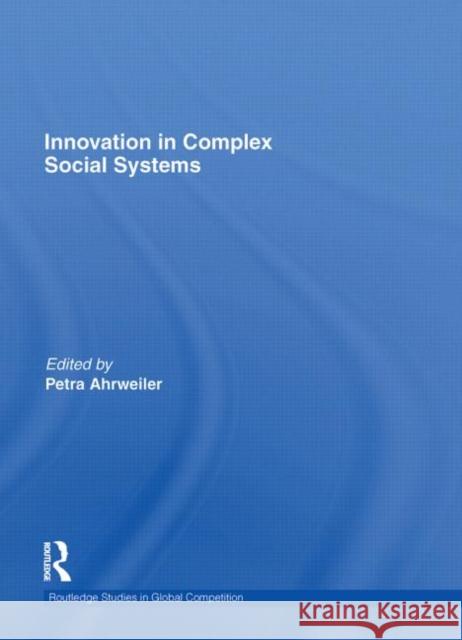Innovation in Complex Social Systems » książka
Innovation in Complex Social Systems
ISBN-13: 9780415558709 / Angielski / Twarda / 2010 / 352 str.
Innovation in Complex Social Systems
ISBN-13: 9780415558709 / Angielski / Twarda / 2010 / 352 str.
(netto: 791,35 VAT: 5%)
Najniższa cena z 30 dni: 730,42
ok. 16-18 dni roboczych.
Darmowa dostawa!
Innovation is the creation of new, technologically feasible, commercially realisable products and processes and, if things go right, it emerges from the ongoing interaction of innovative organisations such as universities, research institutes, firms, government agencies and venture capitalists. Innovation in Complex Social Systems uses a "hard science" approach to examine innovation in a new way. Its contributors come from a wide variety of backgrounds, including social and natural sciences, computer science, and mathematics. Using cutting-edge methodology, they deal with the complex aspects of socio-economic innovation processes. Its approach opens up a new paradigm for innovation research, making innovation understandable and tractable using tools such as computational network analysis and agent-based simulation. This book of new work combines empirical analysis with a discussion of the tools and methods used to successfully investigate innovation from a range of international experts, and will be of interest to postgraduate students and scholars in economics, social science, innovation research and complexity science.
Innovation, the creation of new, technologically feasible, commercially realisable products and processes emerges from an ongoing interaction process of innovative organisations in various sectors such as universities, research institutes, firms, government agencies, venture capitalists and others. These actors generate and exchange knowledge, financial capital, and other resources in networks of relationships, which are embedded in institutional frameworks on the local, regional, national and international level.
This book now has something new to say about innovation. Its contributions make full use of cutting-edge methods coming from the natural sciences, from computer science, and mathematics to deal with the complex aspects of socio-economic innovation processes, without leaving out the messy features of empirical reality and the "human element" and indeed taking full account of it. Its approach opens up a new paradigm for innovation research, which is announced by its title: the contributions analyse innovation in complex social systems while making innovation understandable and tractable using tools such as computational network analysis and agent-based simulation.











